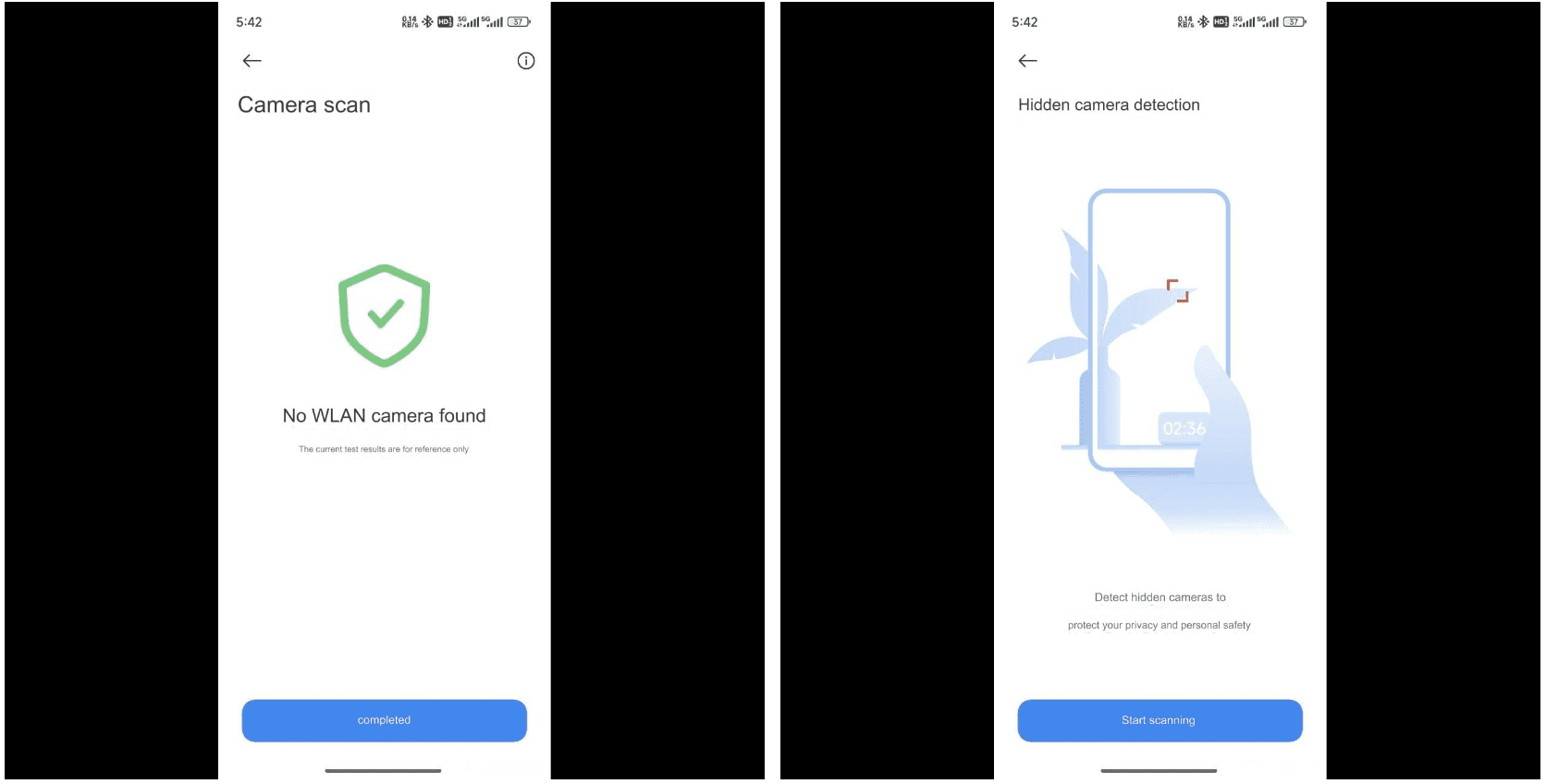
Image Credit: xiaomitime
Xiaomi is poised to launch Xiaomi HyperOS version 2.0, which is rumored to include a new feature to help users protect their privacy by detecting unknown, hidden cameras within a local network.
In recent years, hidden cameras or pinhole cameras have been discovered in various hotels, guesthouses, and other public places, used for clandestine filming. These cameras are typically very small, without LED indicators, and are often concealed within outlets, light fixtures, or disguised as smoke detectors, making them nearly impossible to detect.
This has led to the unauthorized recording and online dissemination of private videos, posing significant privacy and security risks for both hotels and their guests. To address this issue, Xiaomi aims to develop a feature capable of detecting hidden cameras.
To utilize this function, users need to connect to the public WiFi provided by the hotel. Xiaomi phones will then scan the local network to identify any devices associated with cameras. If such devices are detected, the phone will alert the user to the potential privacy breach.
This feature might be inspired by the open-source project Ingram on GitHub, which is written in Python and can detect cameras on a local network through IP address filtering or traffic analysis.
While promising, users should remain cautious, as many hidden cameras now come with built-in SIM cards and do not rely on WiFi, making them undetectable through this method. Additionally, some malicious actors may use non-networked hidden cameras, periodically retrieving the storage cards to export the recorded videos.
Therefore, when staying at any accommodation, it is advisable to use your phone’s flashlight to thoroughly inspect hidden areas. Relying solely on WiFi detection for hidden cameras might provide only a false sense of security.
Related Posts:
- Hacker can use hotel key cards to penetrate into rooms
- Hacker group Anonymous controls over 400 Russian cameras
- Sophos X-Ops Alerts: ‘Inhospitality’ Malspam Targets Hotels with Deceptive Tactics